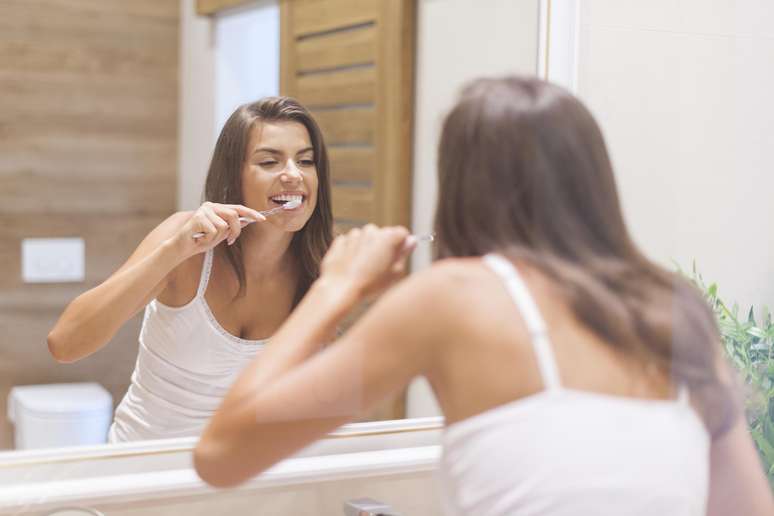During sleep, saliva decreases and the mouth becomes an environment predisposed to the proliferation of bacteria and the formation of bacterial plaque.
Brushing your teeth before bed may seem like a basic daily hygiene task. However, some people continue to neglect this step in their health routine. While you sleep, your mouth becomes a breeding ground for bacteria and plaque, which can lead to a variety of dental and general health problems.
In an interview with Earth you, Dentists Catherine Sales, of Odonto Guará, and Ianara Pinho discuss how ignoring this practice can also affect more serious problems such as infections and periodontal disease.
Sales explains that a lack of brushing allows food debris and plaque to remain on the teeth overnight, which makes it easier for bacteria to multiply. This can lead to the development of cavities, gingivitis, and even periodontitis.
“Plaque buildup can also lead to tartar formation, which is more difficult to remove and can cause bad breath and gum inflammation,” explains the dentist.
Plaque buildup overnight can also cause gingivitis and periodontitis. Plaque that is not removed can irritate the gums, causing gingivitis, an early inflammation of the gums.
If left untreated, gingivitis can progress to periodontitis, a more serious condition that affects the tissues that support the teeth and can lead to tooth loss.
Ianara Pinho says that if you neglect regular nighttime brushing, you may initially see white spot lesions, which are the first sign of tooth decay. Your gums may become red, swollen, and painful, causing gingivitis.
In both cases, the progression of these conditions can lead to bone loss, pain, and ultimately tooth loss. In addition, neglecting brushing can lead to other conditions, such as bad breath, also called Halitosis.
“At night, our saliva production decreases significantly. Saliva is a great ally in protecting against caries lesions. This is why dentists ask that nighttime brushing be done carefully, to avoid caries lesions, gum problems and other problems resulting from the accumulation of bacterial plaque,” warns the specialist.
Dentists emphasize that there are no alternatives that replace dental floss and toothbrushing, but rather complementary practices that can help maintain oral health:
- Foods rich in fiber;
- Use of mouthwashes with fluoride;
- Adequate hydration;
- Reduction of sugary foods;
- Using the tongue cleaner.
Source: Terra
Ben Stock is a lifestyle journalist and author at Gossipify. He writes about topics such as health, wellness, travel, food and home decor. He provides practical advice and inspiration to improve well-being, keeps readers up to date with latest lifestyle news and trends, known for his engaging writing style, in-depth analysis and unique perspectives.






![Tomorrow Belongs to Us: What’s in store for Friday 31 October 2025 Episode 2065 [SPOILERS] Tomorrow Belongs to Us: What’s in store for Friday 31 October 2025 Episode 2065 [SPOILERS]](https://fr.web.img4.acsta.net/img/27/7e/277e1f041c48016486ab18771f578de1.jpg)

